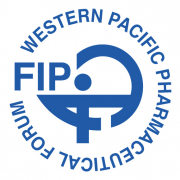Flushed cheeks a warning sign
Research suggests that blushing after a few drinks is a symptom of a genetic mutation and deficiency endemic to Taiwan, not an indication of a strong, healthy liver, as popular legend purports.
Stanford University School of Medicine researchers have found that a tendency to blush after drinking comparatively small quantities of alcohol is indicative of a condition called “aldehyde dehydrogenase-2 deficiency,” also known as “ALDH2 deficiency.”
When ethanol enters the human body, it is converted by a type of enzyme called alcohol dehydrogenase to acetaldehyde, which is then converted to acetic acid by aldehyde dehydrogenase-2, or ALDH2.
ALDH2 deficiency is a genetic mutation that prevents the human body from quickly processing acetaldehyde.
The condition is prevalent in Asia and especially in Taiwan, where it manifests in almost half of the the nation’s population.
According to Chen Che-hong (陳哲宏), a senior research scientist at the school, ALDH2 deficiency is a dominant genetic trait common among members of the Han ethnicity, particularly those who originated along China’s coastline.
However, while this condition occurs in about 35 percent of the Chinese population, it occurs in about 47 percent of Taiwanese, the highest in the world, Chen said.
The mutation is not common in Aboriginal communities, he said.
Chen said that the predilection to blush after drinking alcohol occurs when an impeded metabolic system fails to process acetaldehyde, causing the substance to accumulate in the bloodstream.
As a result, blood vessels dilate and the heartbeat speeds up.
He said that the idea that rapid blushing after drinking as a sign of a strong liver is a pernicious myth.
The body’s failure to metabolize acetaldehyde causes headaches, heart palpitations, nausea and hangovers, as well as inducing cancerous mutations in humans, Chen said, adding that the WHO has been keeping it on its list of Group 1 carcinogens for years.
People with ALDH2 deficiency increases the risk of developing mouth and throat cancer by 50 times if they drink two glasses of wine per day, when compared with a person who does not drink, Chen said.
While Western doctors may say that two glasses of red wine are healthy, this does not apply to Taiwanese, due to the prevalence of ALDH2 deficiency, Chen said.
ALDH2 deficiency is easily detected by consuming an alcoholic drink in front of a mirror to check for blushing, a method that is about 90 percent accurate, the researcher said.
Genetic analysis provides the most precise diagnosis, but Chi Mei Hospital in Tainan is the only facility in Taiwan to offer such tests, Chen said.
The government has failed to adequately educate the public about the dangers of acetaldehyde, Chen said, urging authorities to make it a public health priority.
Since tobacco products and alcohol both contain acetaldehyde, Chen said users of those substances should quit them to protect their health.
A new drug designed to activate ALDH2 in the human body is being developed outside Taiwan and has entered phase one clinical trials, Chen said.
